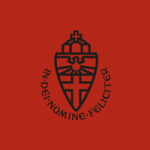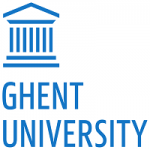项目介绍
COURSES:
The first two years are primarily devoted to taking courses (normally, a total of 12, distributed as broadly as possible), satisfying language requirements, and preparing and taking the general examination. At the end of the second year, students are expected to specialize. Normally, by the end of their fifth term of study, students should have taken a total of 15 courses or seminars. In their third year, students will continue to take a limited number of courses as they prepare their dissertation proposal.LANGUAGE(S):
Students are normally required to demonstrate a reading proficiency in one language additional to French and English before beginning the fall semester of the third year and before taking the second part of the General Examination. Following discussion with the Director of Graduate Studies, students should select a language relevant to their research interests (e.g., Latin for medievalists and students specializing in the Renaissance, or German for 19th-century studies, etc.). PRE-GENERALS REQUIREMENT(S):
Oral Presentation
The oral presentation, required of all first-year students at the end of the first term, consists of a brief critical reading of a literary text in French, followed by questioning related to the text. Students are allowed a choice from three texts. The presentation is given in French. Answers are to be given in the language in which they are asked.GENERAL EXAM:
The purpose of the examination is to test students’ knowledge and capacity to conduct research across the six periods taught in the department: Middle Ages, Renaissance, 17th, 18th, 19th, and 20th-21st centuries, as well as “Francophonie.”
Generals I
Students will study a common list of about 50 literary works, selected from the periods taught in the department and reflecting a broad range of genres. The list will include a selection of key theoretical works. A written exam will test students’ familiarity with the material. It will take place at the end of the third semester, during the January Reading Period of the second year, over a period of five days, and will take the form of two essay questions. These essays must not exceed 2,500 words each; one must be written in French, the other in English. The exam will be graded by the department’s Graduate Studies Committee.
Generals II
In consultation with the director of graduate studies (DGS) and with the assistance of faculty in the relevant fields, students will formulate an individual topic and develop an accompanying reading list that will form the basis of the examination. The topic is broadly conceived and could center on a specific author, period, genre, problem, or movement. The reading list, featuring approximately 70 items, should be divided into three components: (i) primary literary works; (ii) relevant scholarship providing context (historical, literary, or cultural); and (iii) theoretical apparatus (literary theory, critical theory, philosophy…). A statement accompanying the list (1-2 pages) should describe the topic, justify the corpus selected, and articulate the importance of the contextual and theoretical frames for approaching the primary list. The written exam, usually taken at the beginning of the fifth semester (early in the fall of the third year), extends over a period of five days, during which the student will answer two questions (one in French, one in English, not to exceed 2,500 words each) bringing the context and theory to bear on the primary list. The oral examination will usually take place two days after the submission of the written part, and will consist of a discussion pertaining to the written exam that may be extended to the rest of the list. The exam will be graded by a committee composed of faculty members chosen by the student in consultation with the DGS.QUALIFYING FOR THE M.A.:
The Master of Arts (M.A.) degree is normally an incidental degree on the way to full Ph.D. candidacy and is earned after a student successfully passes the first-year oral presentation and Generals I and II and meets course work and language requirements. It may also be awarded to students who, for various reasons, leave the Ph.D. program, provided that these requirements have been met.TEACHING:
As a matter of policy, the department requires its graduate students to gain experience in undergraduate teaching. Most students are appointed as part-time teaching assistants each year they are in residence, starting in the second year. In the spring of their first year, students are trained to teach the French language; in the fall of their second year, they teach one language course. In the third, fourth, and fifth years, they normally teach one course per semester, although schedules vary depending on student or departmental needs and on fellowships that provide relief from teaching duties. Normally, students do not teach during their first term of residence or in their fourth term, when they are preparing for the general examination. Opportunities to teach in literature courses sometimes arise. This teaching is guided and supervised by a faculty member who confers with the student and reports to the department chair on his or her classroom performance.DISSERTATION AND FPO:
The third through fifth years are devoted to the conceptualization and writing of the dissertation. It is not uncommon for students to spend the fourth year conducting research abroad, for example in Paris where we have guaranteed studentships at the Ecole Normale Supérieure. The dissertation is in the chosen field. Students may, however, choose to bridge fields in selecting a dissertation topic.
Oral Examination on the Dissertation Proposal
Taken no later than February of the third year, the oral examination on the dissertation proposal consists of a 60-minute exercise comprising (1) a 20-minute presentation in French of the student’s dissertation proposal and (2) comprehensive questioning dealing with the implications of the proposal and the student’s general program of study. The questions focus on matters such as literary history and bibliography as well as on critical methods. In order to be admitted to this oral examination, students are required to submit, no later than one week prior to the exercise, a written text of the proposal outlining the issues they propose to explore, the methods of analysis they propose to adopt, and the bibliography of the topic. Students may not sustain the oral examination on the dissertation proposal until they have successfully passed the special field examination. The faculty will make suggestions concerning the proposal, and can approve it, recommend that it be revised and resubmitted, or, in accordance with University regulations, recommend that the candidate be awarded a terminal master’s degree.
In the event of failure to sustain the oral examination, students may present themselves on one further occasion, within a time period determined by the director of graduate studies. Departmental recommendation of graduate students for a fourth year of study is contingent on their having sustained the oral examination on the dissertation proposal.
Especially well-qualified students who have completed the language prerequisites may, upon successful application to the department’s Committee on Graduate Studies, be authorized to present themselves early for the general examination and the oral examination on the dissertation proposal.
Final Public Oral Examination
The Ph.D. is awarded after the candidate’s doctoral dissertation has been accepted and the final public oral examination sustained.
联系方式
电话: 609-258-3000相关项目推荐
KD博士实时收录全球顶尖院校的博士项目,总有一个项目等着你!






